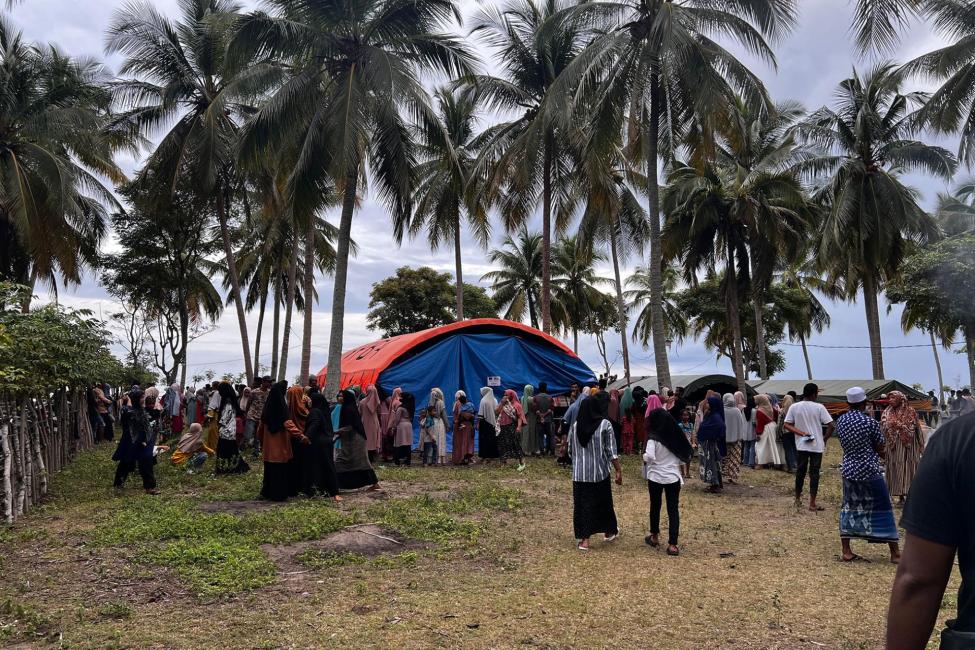-
Who we are
WHO WE AREThe International Organization for Migration (IOM) is part of the United Nations System as the leading inter-governmental organization promoting since 1951 humane and orderly migration for the benefit of all, with 175 member states and a presence in over 100 countries. IOM joined the United Nations system in September 2016.
About
About
IOM Global
IOM Global
-
Our Work
Our WorkAs the leading inter-governmental organization promoting humane and orderly migration, IOM plays a key role to support the achievement of the 2030 Agenda through different areas of intervention that connect both humanitarian assistance and sustainable development.
Cross-cutting (Global)
Cross-cutting (Global)
- Data and Resources
- Take Action
- 2030 Agenda
IOM Addresses Migration, Population Mobility and Health at UN Summit on Refugees and Migrants
New York - IOM yesterday (22/9) participated in an event on Health in the Context of Migration and Forced Displacement on the sidelines of the UN Summit on Refugees and Migrants in New York.
The panel, hosted by the Governments of Italy and Sri Lanka, and co-organized by IOM, UNHCR and WHO, included participants from Johns Hopkins University, the World Bank and the International Catholic Migration Commission (ICMC).
Speaking at the event, Ambassador Laura Thompson, IOM Deputy Director General said: “As long as migrant populations have restricted abilities and rights to access affordable health services, concepts and slogans such as ‘Universal Health Coverage’ and ‘leaving no one behind’ are pointless.”
“Health must be given due consideration as we move towards the Global Compact for Safe, Orderly and Regular Migration, and the Global Compact for Refugees, to improve the health of migrants and refugees during all phases of the migration cycle, as well as to respond to public health needs of hosting societies,” she added.
She also pointed out that obstacles to migrants’ access to health care, whether societal, cultural, or economic needed to be identified and removed. “After all migration health issues cannot be solved by the health sector alone and migration and health are inextricably linked with other policies on development, labor, foreign policy, security, the environment, and so on.”
“The health sector is the frontline of service delivery, but at the same time it is the weakest sector in advocacy,” said Dr. Ranieri Guerra, Director General of Preventive Health and Chief Medical Officer at the Italian Ministry of Health.
The event was one of the first on migration, human mobility and health at the UNGA, and offered a unique opportunity to finally address an issue that had been underestimated for too long. Participants agreed on the necessity of developing a unified agenda reconciling acute, crises-driven large scale displacement as well as long term economic and disparity-driven structural migration, and paved the way towards a joint roadmap of key benchmarks and accountability.
Dr. H.S.R.P de Silva, Director General of Health Services, Ministry of Health, Nutrition and Indigenous Medicines of Sri Lanka said that in February 2017, IOM, WHO and the Government of Sri Lanka will organize the 2nd Global Consultation on Migrant Health, to be held in Sri Lanka and will focus on resetting the agenda and continuing the collaboration towards the achievement of Universal Health Coverage for all.
For further information, please contact Manuela Altomonte at IOM HQ in Geneva, Tel: +41 22 717 9293, Email: maltomonte@iom.int
